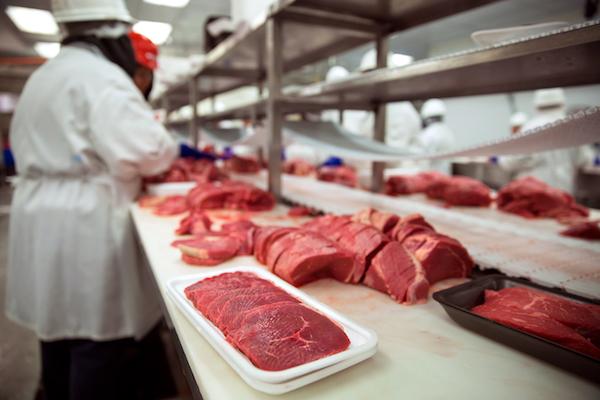Tuesday 22 February 2022
In preparation for the proposed border opening on Tuesday 3 March 2022, The WA Government have updated a number of policy settings including critical worker testing and isolation protocols and vaccination requirements. AMIC will continue to monitor these settings and update members as required.
Critical Worker Categories
Western Australia have recently announced critical worker definitions and protocols for very high caseload environment.
These protocols will only take effect when WA reaches a very high caseload environment, subject to the latest health advice.
The definition of a critical worker in WA is someone whose role cannot be undertaken at home who:
- Performs a role that is critical to the COVID-19 response, or continuation of critical services that prevent significant harm to an individual or the community.
- Performs a role that is necessary for the safe continuation of services and/or has specialist skills in one of a range of defined industries.
Of importance to AMIC members and our supply chain, these industries include
- Agriculture (for the purpose of food supply and biosecurity);
- Transport, freight and logistics;
- Food, beverage and pharmaceutical manufacturing, supply and retail (e.g. supermarkets, grocery stores and retail butchers);
- Veterinary services
AMIC members will predominantly be categorised under Food, beverage and pharmaceutical manufacturing, supply and retailing. i.e person who works at a work premises used for the distribution, production, and processing of good including meat and seafood processing and a person employed or engaged to work in retail premises that are supermarkets, grocery shops, pharmacies or other shops that predominantly sell food.
A full list of the categories under the critical worker policy can be found here: https://www.wa.gov.au/government/covid-19-coronavirus/covid-19-coronavirus-critical-worker-categories
Workplaces will be required to determine the number of critical roles, based on the State Government’s guidelines. Employers must register this information with the State Government.
An online registration system is not yet in place, however the WA Government have committed to have this system developed ahead of these settings coming into place.
Members can prepare by determining the number of critical roles at in your business so this can be submitted when the system is ready.
Please note it is not intended that all workers in the specified industries are considered critical and you will be required to determine and register the number of critical roles based on the government guidelines / categories.
Critical Worker Testing and Isolation Protocols
Once established, critical workers will be required to follow the new testing and isolating protocols if they are a close contact:
- If symptomatic, follow symptomatic close contact rules
- If asymptomatic, and you are required to work for continuity of operations, you must have a negative RAT daily
- When working you must work with a surgical mask, use other PPE where possible, and if possible travel alone
- When outside of work, you must self-isolate
- If a RAT is positive, you must self-isolate for 7 days.
- If symptoms ever develop, you must follow symptomatic close contact rules.
AMIC will keep a watching brief on this issue and provide an update to the membership as systems are developed and settings are finalised.
Please see here for further details on the definitions and protocols:
Vaccination Requirements
Western Australia introduced mandatory vaccination directions late last year. The directions prevent persons from entering or remaining at certain critical business sites if they have not been vaccinated against COVID-19. These critical businesses include meat processing and retail businesses.
Although the Directions for each sector vary slightly, the key points are similar.
Relevant dates for meat industry workers:
- On and from 1 December 2021 a meat industry worker must be partially vaccinated to enter or remain at a meat industry site.
- On and from 1 January 2022 a meat industry worker must be fully vaccinated to enter or remain at a meat industry site.
Relevant dates for critical business workers (Retail)
- On and from 1 January 2022, a person who is a critical business worker must not enter, or remain at, a critical business site if the critical business worker has not been partially vaccinated.
- On and from 1 February 2022, a person who is a critical business worker must not enter, or remain at, a critical business site if the critical business worker has not been fully vaccinated.
Collecting, and Maintaining a Record of Vaccination Status
By the relevant dates the employer, owner, occupier, operator or person apparently in charge of a meat industry site must:
(a) take all reasonable and lawful steps to:
- collect and maintain a record of the vaccination status of each meat industry worker; and
- only roster on, or otherwise permit to work at a meat industry site, a meat industry worker who is vaccinated or is an exempt person in accordance with these directions;
Proof of Vaccination and Exemptions
Proof of vaccination can be provided by a variety of documents such as a letter from the Department of Health, a certificate of immunisation or an immunisation history statement obtained from the Australian Immunisation Register or a COVID-19 Digital vaccination certificate.
Exemption to the vaccination requirement will apply if a person has a medical exemption in line with the requirement of the Chief health officer approved form of evidence of covid-19 vaccination
If a worker refuses to provide vaccination information the employer would treat the worker as if the worker is unvaccinated.
Penalties
Penalties for failing to comply with these directions is punishable by a fine of up to $20,000 for individuals and $100,000 for a body corporate.
Managing Workers who do not meet the requirements
An employer doesn’t have to pay an employee when either the federal or a state or territory government or officer makes an enforceable government direction that prevents an employee from working.
For further information regarding standing down employees under the General Fair Work Act stand down provisions, see the Fair Work Ombudsman advice here >
For further information see the relevant directions for each sector:
For meat processors and smallgoods:
Meat industry worker restrictions access directions >
For retail butchers:
Critical businesses worker restrictions access directions >





